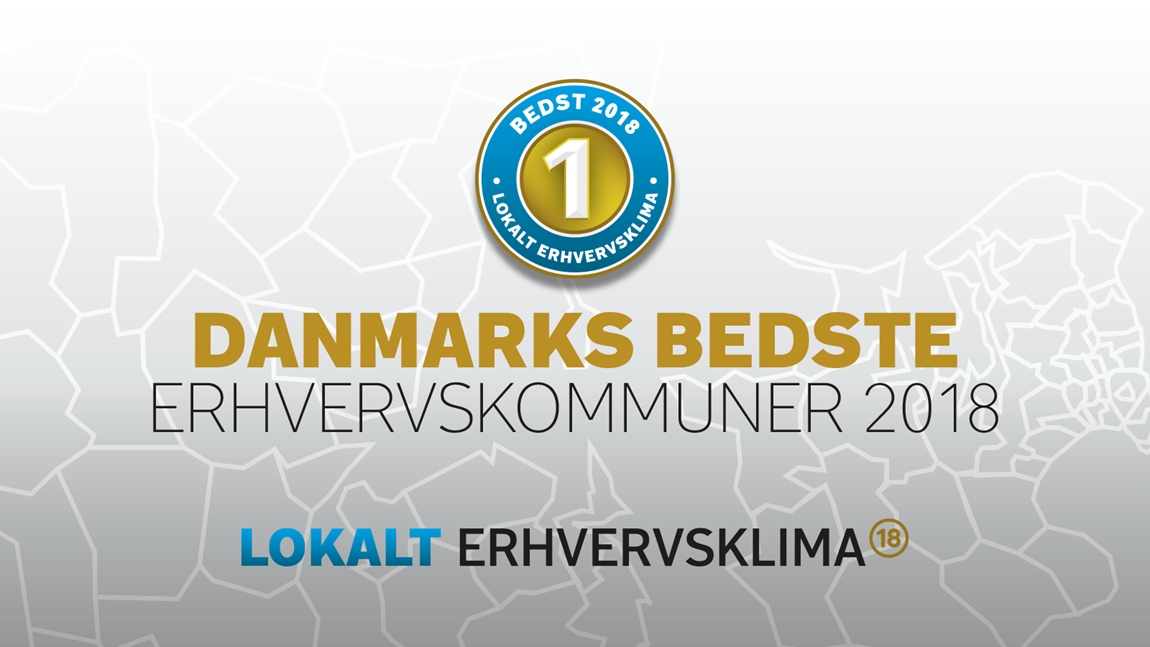Ikast-Brande has Denmark’s best business climate
The best place to run a business in Denmark is Ikast-Brande Municipality, followed by Herning and Hedensted, shows the Confederation of Danish Industry’s survey of the business climate in Denmark’s municipalities, which nearly 7,700 companies have participated in.
If anyone thought Ikast-Brande’s title as Denmark’s best business municipality would change with the election of a new mayor, they were wrong.
The Confederation of Danish Industry’s (DI) annual survey of municipal business climate shows that Ikast-Brande – yet again – is the municipality where local business are most satisfied with the business climate.
The victory is unsurprisingly cause for celebration at city hall in Ikast-Brande.
“As the newly elected mayor, it would have been hugely disappointing if we had fallen to a tenth place. That would have really stung. What’s more, my background in business means that making sure we have a good business climate in the municipality is a big priority for me,” says Mayor Ib Boye Lauritsen.
He ascribes the victory to the city council’s unified focus on making Ikast-Brande a good place to do business.
“We want to be Denmark’s business municipality,” he says.
According to DI, Ikast-Brande is an exemplar for other municipalities in Denmark.
“Ikast-Brande has won the Local Business Climate title for eight out of nine years. The facts speak for themselves, and this is clearly a municipality where both politicians and civil service are extremely good at creating a flexible framework that caters to the municipality’s businesses,” says CEO at the Confederation of Danish Industry, Karsten Dybvad.
We want to be Denmark’s business municipality Mayor Ib Boye Lauritsen
Good business climate in central and western Jutland
DI’s survey generally shows that the central and western Jutland municipalities are excelling. In second and third place in this year’s municipal business climate ranking come Herning and Hedenstad, followed by Nordfyn and Ringkjøbing-Skjern, shows a new analysis of the data.
According to Karsten Dybvad, it is notable that central Jutland’s good results in past years have only got better.
“The central Jutland region has long been attentive to the fact that when the municipality’s businesses prosper, the municipality gains jobs and tax money for better schools, daycare and other welfare,” says DI’s CEO.
For Ikast-Brande’s mayor Ib Boye Lauritsen, the good results in central Jutland demonstrate that businesses and jobs do not come to the region on their own but must be fought for.
“In some parts of Denmark, new businesses and jobs come automatically. That’s not the case for us. Here, nothing is given or comes easy. We have to be more proactive,” he says.
According to DI’s survey, companies’ satisfaction with the business climate is lowest in and around major cities. For the country as a whole, however, satisfaction with the business climate in municipalities has increased throughout the years.
See also: Local politicians want business – but Jutland wants it the most
LOCAL BUSINESS CLIMATE 2018
- DI’s survey, Local Business Climate 2018, is Denmark’s largest survey of municipal business climate. This is the ninth year running that DI has conducted the survey.
- Nearly 7,700 companies within DI’s industries, including production, transport, foods, wholesale trade, consulting and service, have taken part in the survey. The responses represent 350,000 jobs in total, which is equivalent to just under 20% of the private sector workforce.
- In 2018 the survey has been expanded with new questions and new statistical indicators, which means that the survey offers an even more detailed picture of municipalities’ business friendliness. It also means, however, that it can only be compared with rankings from previous years with certain reservations.
- For the first time, the results from the questionnaires and the statistical indicators have been divided into nine categories. This gives a picture of how well the municipalities are doing in various areas – in addition to the overall result.
- Responses from executives make up 2/3 of the survey’s result, while the final third is determined by indicators such as taxes, land tax rate, private sector employment, the number of start-ups and labour force participation rate, among other things.
- 93 of the country’s 98 municipalities have been rated. The five smaller municipalities Samsø, Langeland, Ærø, Læsø and Fanø are not included, as it is not possible to collect sufficient responses.
Source: Local Business Climate 2018


